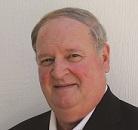
Leadership in the economic development arena, regardless of which of the four tracks of economic development professionals you fall under, whether you are a corporate site selector, a site selection consultant, a chamber of commerce member or an economic development organization executive, is step one in achieving successful economic development bottom-line results. That is, good jobs and revenue.
The origins of economic development in the Unites States go back to the post-Civil War Reconstruction Period when Southern states, ravaged by the war, hired “industrial recruiters” to literally buy Northern manufacturing concerns with offers of free land and cheap labor. In too many economic development organizations, the times haven’t changed much have they?
Regardless of the depth of planning an organization may put into their economic development goals, the perceived desirability of a region’s livability or location, if the leadership of the organization cannot stimulate their own people and the decision makers in the target industries they are attempting to attract, they will never sell their “vision.” Easier said than done.
Likewise, site selection consultants should also be the leadership catalyst for their corporate clients and the locations they are recommending. Dwight Eisenhower, a pretty successful leader as both a soldier and as President, gave the direction for consultant leadership quite succinctly: “It is the art of getting someone to do something you want done because he wants to do it.”
There are, of course, those people who other people just naturally want to follow — born leaders. But the attributes these people possess are not intangibles that cannot be acquired or enhanced by any economic development executive or site selection consultant. Leadership seminars are regularly conducted by economic development organizations such as The Site Selectors Guild and IEDC.
Okay, so what are they? All great leaders, whether you perceive them in history to be good guys or bad guys, have had the same basic set of traits. INC., CEO, Forbes and any number of books on the subject of leadership all have published lists of great leadership traits. They all basically agree at some level on the following 10:
1. Be results oriented. You are responsible for delivering results. It’s not about effort; it’s what is accomplished that matters. Great leaders spend their energy on the activities that achieve the greatest outcome.
2. Be customer focused. You have to know your customer’s needs intimately. Everything you do needs to be directed at what your customer needs or will need.
3. Have a vision. Know where you’re going and convey it to everyone in the organization. Your vision is the primary motivator to accelerate action.
4. Be strategically focused. Don’t focus exclusively on the present. Focus on the bigger picture and on keeping ahead of the market.
5. Effectively get work done through others. You can’t do everything yourself. If you want to do big things it means effectively working through others.
6. Be good at dealing with conflict. The reality is that conflict is going to happen. People have different opinions. Great leaders learn how to resolve conflict and harness the best ideas from them.
7. Ask great questions. Careful analysis of the goal you have set will generate great questions. Take advantage of them.
8. Make great decisions. Making decisions is one of the fundamental actions of an executive. Quality decisions result from a consistent, timely decision-making process.
9. Be a trusted leader. People want to follow the leader they trust to accomplish great things. It takes time to build trust, but it can evaporate quickly if you do not constantly reinforce it.
10. Communicate. Great leaders communicate their vision and action. It is fundamental. But a great leader also listens extremely well.
This discussion on leadership might best be summed up by possibly the greatest leader in the history of our nation, Abraham Lincoln, who simply said: “Whatever you are, be a good one.”

